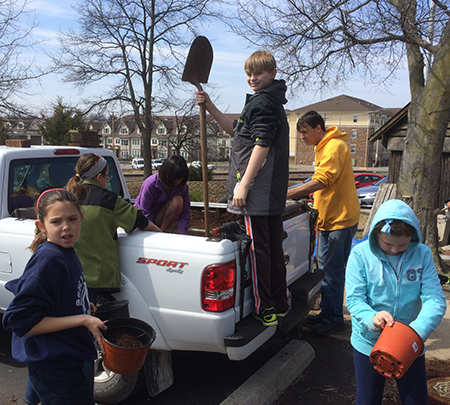
Your kids’ work on the school grounds and in the community helps to counter this rush to put everyone in their own cells. When kids work collaboratively with each other, assisted by school staff and community experts, they not only learn more—they learn differently. They learn to share ideas, respond constructively to what they hear, and work in concert with each other and with the world at large.
In a broader sense, it’s only when people are actively co-creating that they can flourish. To that end, Fesmire draws a distinction between a jazz player working in the moment through an active give and take with others, and a “score reader” who simply plays the notes assigned. For too long, schools have valued score readers and worked to minimize the jazz-like role of creative intelligence. Together, we can push back and restore a healthy learning environment for kids. It’s good work, and we’re honored to share it with you.